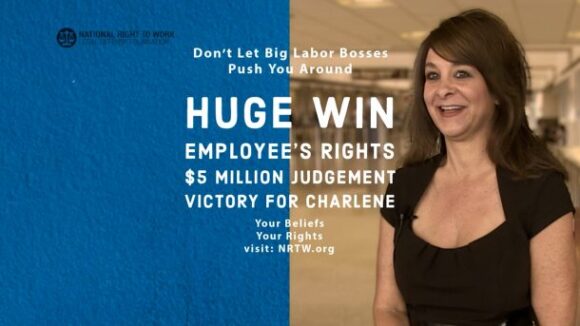UPS Driver Stabbed Multiple Times by Teamster Thugs Using Ice Pick
Today is the 25th anniversary of the Teamster multiple stabbing of UPS driver Rod Carter. Teamsters Union Bosses primarily called the…
As he makes plain in the February 3 blog post linked below, pundit Matthew Yglesias, the executive editor of the Vox news and commentary site, bemoans the decline in U.S. private-sector unionization that began decades ago and continues today. But unlike most of his fellow Big Labor apologists, Yglesias is honest enough to admit that many currently union-free employees have good reason to believe that unionization would leave them economically worse off.
Yglesias’ Tuesday analysis of why the share of private-sector employees who are unionized is shrinking summarizes and links to a 2013 scholarly article by Brigham Young University economist Brigham Frandsen. Frandsen found that, after union organizers secure monopoly-bargaining privileges at a company in a relatively close workplace election, jobs are typically cut and the likelihood that the firm will go out of business increases.
As Yglesias explains, one key reason why newly-unionized firms have trouble remaining competitive is that “[o]lder and better-paid staff are disproportionately likely to leave” such firms. He adds:
This is because one of the things research constantly finds is that labor unions . . . rais[e] the floor and lower[] the ceiling of pay scales at unionized firms. [Emphasis added.]
Limiting the pay of the highest-earning members of a particular company in the context of a marketplace where most companies aren’t unionized naturally has the effect of inspiring many of those higher-earning workers to seek new jobs elsewhere.
Of course, as Yglesias goes on to admit, all employees, including even relatively low-skilled employees whose pay goes up more rapidly in the short term, may potentially get hurt over time by such Big Labor “compression of wages,” because if a firm loses its “star performers to the competition,” the entire business is put at risk.
Yglesias’ analysis and Frandsen’s article do not directly touch on the issue of Right to Work laws, but the reality described by the pundit and the economist is dramatically at variance with the make-believe world routinely invoked by union officials and other forced-unionism apologists who seek to protect Big Labor’s monopoly privileges.
When conducting propaganda campaigns against Right to Work measures in states that don’t already have them and at the federal level, the union hierarchy claims again and again, sometimes overtly and sometimes tacitly, that ALL employees who are subject to union monopoly bargaining in the workplace benefit thereby.
In reality, as many labor economists have noted over the years, as Frandsen recently reconfirmed, and as Yglesias acknowledged just the other day, the most skilled and conscientious production employees typically get paid less under a union contract. If they are fortunate, they can find another job at a union-free firm where their abilities and efforts are better appreciated. If they are not so fortunate, they stay at the unionized firm and a Big Labor “ceiling” limits the pay increases they can secure.
In non-Right to Work states, such highly productive workers and other employees who are harmed by union monopoly bargaining can be forced to pay dues or fees for detrimental union representation. That adds insult to injury.


Today is the 25th anniversary of the Teamster multiple stabbing of UPS driver Rod Carter. Teamsters Union Bosses primarily called the…

Flight Attendant Triumphs Over TWU Union and Southwest in Suit About Illegal Firing; Jury Awards $5.1 Million in Damages TWU union…

No union, but especially not one with multiple top officials convicted in federal court of accepting bribes and embezzling workers’ dues money, should be allowed to impose unionization on workers by colluding with company officials to bypass a secret ballot vote. That’s why it is critical that any state incentive package includes a condition that the decision over whether to unionize the proposed Ford-SK Innovation Western Tennessee plant be made with workers having the full protection of a federally supervised secret ballot vote, and absent any backroom deal between company and UAW officials.